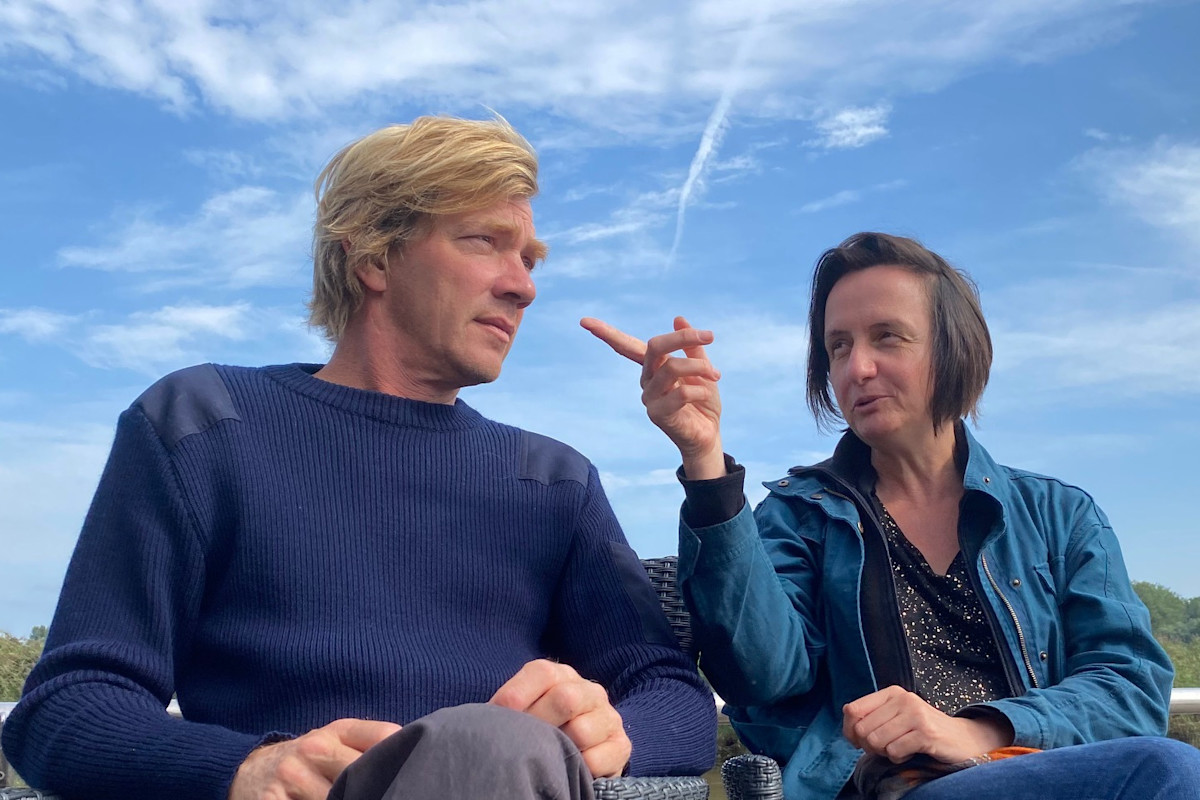During the darkest days of the year, a Dutch-speaking poet and a French-speaking poet, Jan Ducheyne and Laurence Vielle will take various ‘last’ trains. With their poetry and a diary in their pockets, they will travel across the country. For the travellers who take the last train of the day, they will write and perform poetry, both aboard the train and upon departure and arrival.
The last train. That’s the train with the most stories. Because people who take the last train take it because they have no other alternative. They cannot stay in the town or village they are leaving because they have to be somewhere else they are travelling to. They have waited until the last moment or they take the last train each day because their work ends late, or they have to start working late in the place where the train arrives. Often, there are also lost people on the train. Literally, but also figuratively.
Discover the itinerary here.
Jan Ducheyne (Ostend, °1970) once worked as a train conductor for the SNCB/NMBS. As a poet, he stands at the centre of life and wants to be a chronicler of his times. Since 2010, he has been the drivingforce and programmer of the Brussels branch of De Sprekende Ezels, a laidback podium for words, music and comedy that takes place every last Wednesday of the month in café De Monk in Brussels. In May 2018, Jan Ducheyne founded Partij Voor De Poëzie together with Laurence Vielle, Lotte Dodion and Michaël Vandebril (Vonk & Zonen). The goal is to bring more poetry into public space, in obvious and less obvious places. This year, he released two new poetry collections, Overuren in het Niets (together with Simon van Buyten) and Noodzakelijk Kwaad/Altijd weer het Dansen. Both are published by Fluxenberg.
Laurence Vielle (Brussels, °1968) is a Belgian French-speaking poet and actor. She writes/says that for her, poetry is orality. She likes to say words, make them resonate, chant them, give them rhythm. Claude Guerre says this about her: ‘Laurence Vielle is not short of breath. She runs in trains; she walks on the ground. She runs on words; she frequents them assiduously. She writes by living. She lives by writing. In short, she lives naturally. But just as naturally, she also writes short. She doesn’t write after all. She doesn’t try to write, or as someone else said: she finds it.’
With the support of SCAM.

